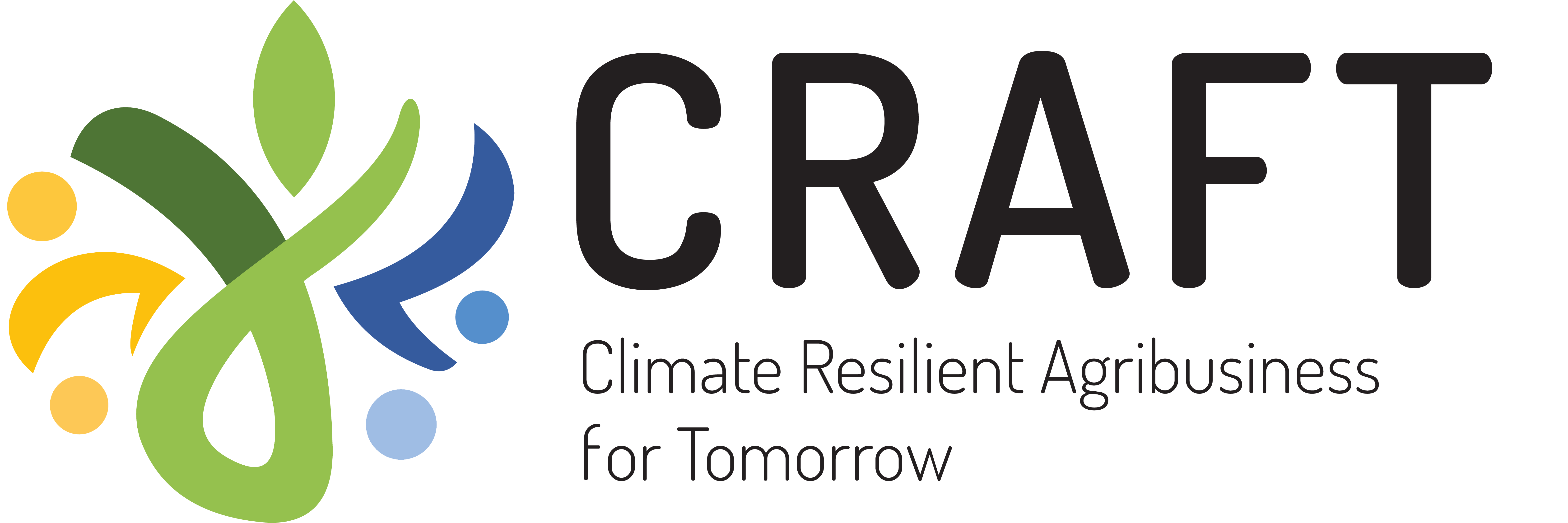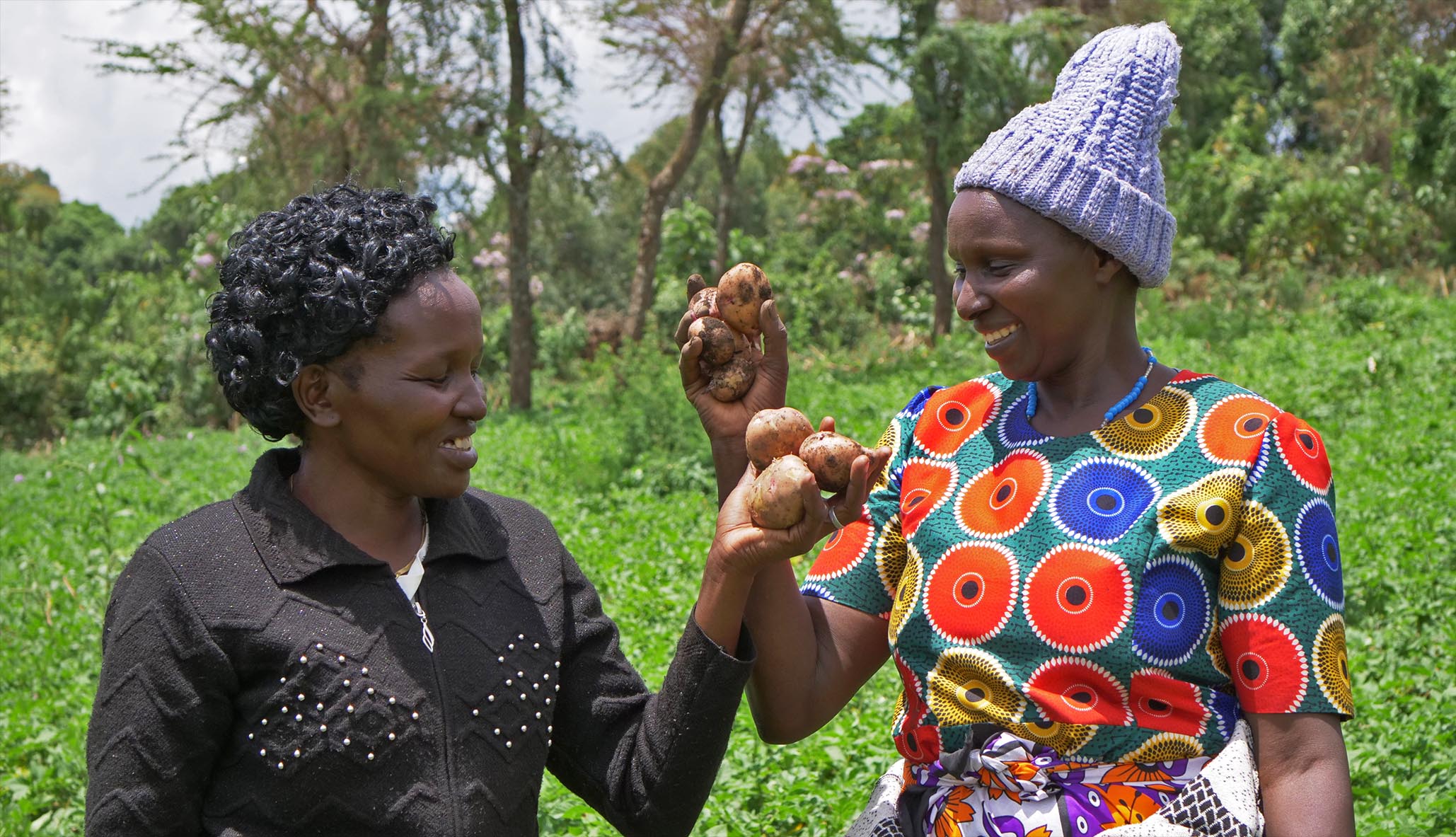The idea of accelerating development by using both older media such as radio and newer information and communication technologies has gained momentum in Africa over the past decades. The continent’s development blueprint - the New Partnership for Africa’s Development (NEPAD) places information technologies high among its priorities. Governments agree that good Internet, telecommunications, and broadcasting services can foster regional trade and improve integration into the global economy.
The cost of setting up communications infrastructure is steep, however, especially in rural areas where distances are vast and population densities are low.
Most areas outside the major towns do not have the electricity necessary for operating land telephones or computers. Radio, by contrast, remains inexpensive and can run on batteries or solar power. As a result, it is by far the dominant mass medium in the continent.
Accordingly, SNV’s Climate Resilient Agribusiness for Tomorrow (CRAFT) Project leverages radio’s popularity in the region to empower communities on issues around climate smart agriculture (CSA) in East Africa.
In Tanzania specifically, the Project is partnering with Ikuwo General Enterprises– an agribusiness enterprise to convey CSA related information to smallholder farmers on Ndingala FM during an interactive radio show dubbed ‘Kilimo Chetu,’ which can be translated to mean Our Agriculture).
As journalists facilitate the talk show which broadcasts weekly on Sundays at 12 PM Tanzania Local Time, the Project’s agronomists, as well as experts from Tanzania’s Ministry of Agriculture and the Meteorology Agency (TMA), respond to inquiries from the farmers to enhance their knowledge and capacity to mitigate, adapt and manage climate risks.
The Kilimo Chetu radio talk show is also an opportunity for farmers to raise their concerns about the impacts of climate change on agriculture and learn about relevant CSA practices and technologies. This contributes to increased engagement in finding local climate solutions.
On average, at least ten (10) listeners call in and/or send messages and questions focused on available climate services and/or updates in agriculture, making the programme a knowledge basin of sorts.
Examples of specific skill sets that are shared or sought include information on sustainable soil and water management methods, climate tolerant and sustainable seeds selection (and distribution), integrated pest management, climate smart post-harvest handling practices, as well as appropriate fertilizer application to help crops survive climate variabilities.
Additionally, farmers are provided with timely weather information that keeps them informed about new climate developments that have an impact on agricultural production.
The radio programme is cost-effective and has already demonstrated an important impact, reaching between 500,000 to 900,000 community members every week. In turn, the majority of the listeners are able to share new gained skills and knowledge with friends and family.
Adelina Katapulo is one of the enthusiast listeners of Kilimo Chetu.
“My husband and I have never missed the program. We always look forward to receiving updates on current weather information regarding bean farming from Tanzania Meteorological Agency,” the 35-year-old from Katakula Ward shares.
Adelina recounts how these updates have been able to help them not only plant beans but also plan for other farming activities like timely harvesting.
In the broadcast on pest control, Frank Mazwile shared his concerns about climate induced pests that were destroying bean crops. While pest management is common to many farmers, they had limited knowledge on how to control this particular one.
‘Until the programme happened, we did not know how to manage this pest and as a result, many farmers suffered crop losses. However, while listening to one of the programmes, I was in a position to learn new techniques such as timely spraying and how to discern certain weather partners that were most favorable to the leaf spot. My garden never suffered any calamities, so I am very glad I listen in on that day,’ he says.
‘Adelina and Frank are just two of the many farmers that call and/or listen in. But since we are limited by time, we are usually not in a position to engage with all of them. So, we always encourage them to come directly to our offices for further guidance on CSA adoption,’ Amos Songoro, an Extension Officer with Ikuwo explains.
To their surprise, many do show up, including those involved in other value chains as evidenced by the registered queries at their office. This is largely attributed to disseminating the program in an indigenous language, and the oral nature of radio where content creators and consumers do not need to be able to read or write.
Ikuwo’s CSA support does not end at on-farm activities but through the radio programme the agribusiness is also able to disseminate information that links farmers to reliable markets and financial institutions that offer tailored and affordable climate smart financial products and services. Such services enable our farmers to earn more profit from their harvest, thus increasing their ability to invest in climate-smart services, technologies, and machinery that they now use to improve their resilience to climate change according to John Msabaha – the company’s Monitoring and Evaluation Advisor.
As of 2021, Ikuwo, under its partnership with CRAFT had trained over 1700 common bean smallholders in CSA practices, while 2700 farmers had already registered to plant common beans and supply the company in 2022.
-------
The CRAFT Project is a private sector led agribusiness intervention focused on promoting viable business cases that are climate smart, inclusive, scalable, and have a clear value proposition to all stakeholders, particularly smallholder farmers in Kenya, Tanzania, and Uganda.
In Tanzania, the project executes its interventions in the common bean, sunflower, sorghum, and potato value chains by providing climate smart solutions such as improved seed varieties, soil and water conservation measures, post-harvest handling technologies, mechanization services, and weather information services.










